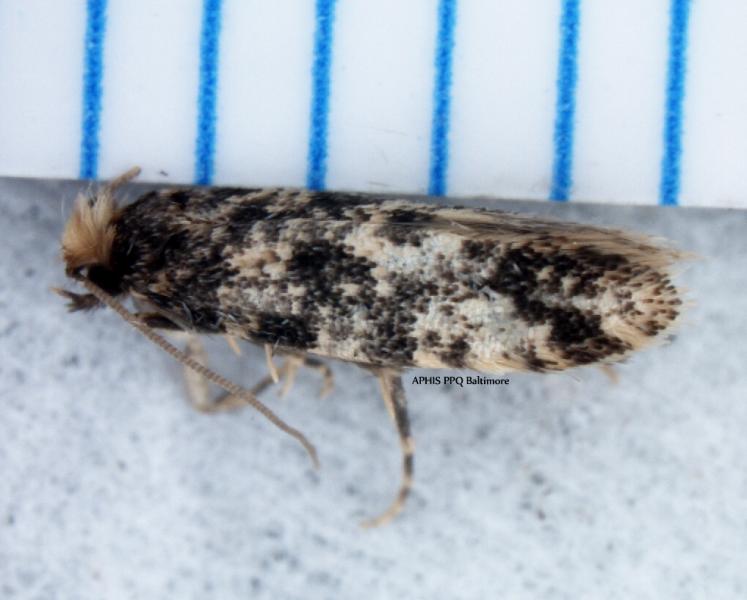BALTIMORE – A U.S. Department of Agriculture (USDA) entomologist confirmed Thursday that U. S. Customs and Border Protection (CBP) Office of Field Operations (OFO) agriculture specialists at the Port of Baltimore seaport made a first in nation pest discovery when they intercepted an insect, Nemapogon gersimovi, a type of moth, while inspecting a shipment of bulk organic soybeans from China on May 2.
This moth could pose a significant agriculture threat because they are known to feed on seeds and grains reducing a farmer’s yield.
“Keeping this pest out of the nation saves the American agricultural industry from the expense of eradication, and the hardship of finding their crops damaged by a new danger,” said Andrii Melnyk, Acting CBP Port Director for the Port of Baltimore. “By stopping destructive species at the border, before they can enter the United States for the first time, CBP officers and agriculture specialists protect this vital American industry.”
 The moth was discovered in a 50,000 pound shipment of bulk organic soybeans from China destined for Pennsylvania and intended for animal feed. CBP forwarded the specimen to a USDA- Animal and Plant Health Inspection Service (APHIS) - Plant Protection and Quarantine (PPQ) entomologist for identification.
The moth was discovered in a 50,000 pound shipment of bulk organic soybeans from China destined for Pennsylvania and intended for animal feed. CBP forwarded the specimen to a USDA- Animal and Plant Health Inspection Service (APHIS) - Plant Protection and Quarantine (PPQ) entomologist for identification.
CBP issued an Emergency Action Notification to the importer requiring the shipment to be re-exported or destroyed. The importer chose to re-export the shipment.
CBP agriculture specialists work closely with USDA’s, APHIS, PPQ to protect our nation’s agriculture resources against the introduction of foreign plant pests and animal diseases.
For more on the plant protection, please visit USDA-APHIS PPQ program.
CBP agriculture specialists have extensive training and experience in the biological sciences and agricultural inspection. On a typical day nationally, they inspect almost 1 million people as well as air and sea cargoes imported to the United States and seize 4,379 prohibited meat, plant materials or animal products, including 440 insect pests.
Please visit CBP agriculture to learn more about CBP's agriculture protection mission.

